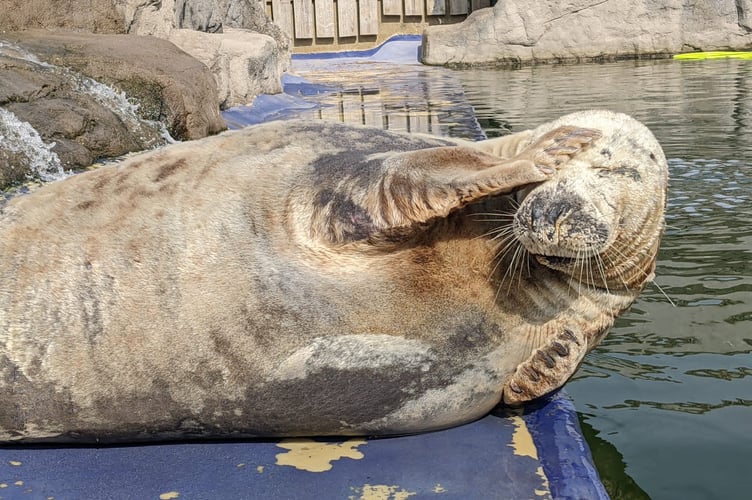Even seals have given up on the British summer – and have started growing their winter coats six months early, a sanctuary says.
Grey seals at the Cornish Seal Sanctuary near Helston have already started moulting due to the rainy weather.
Usually, this only happens in late winter or early spring, when old, drab fur is replaced with a shiny new coat, ready for the demands of extreme temperature changes.
The seal sanctuary says that this is an increasingly common occurrence in recent years - and has even been observed in wild seal populations in Cornwall too.
Tamara Cooper, the charity’s curator, says: “It’s incredibly unusual for our seals to be moulting at this time of year, but we think a few of them might be a bit confused by the dull weather.
“The process takes a lot of energy, as they have to increase the blood supply to the skin at this time, so, as you can imagine, they’re spending a lot of time resting.
“Pup season seems to be starting earlier and earlier each year, with pups now coming into our hospital as early as August.
"We used to expect them from September. This means our team is already prepping our hospital for the first patients, which could be just a matter of days.
“While this could be a direct sign of our seasons getting earlier over the years, it also has a knock-on effect because the pups are more likely to come into contact with the huge volume of visitors Cornwall sees each summer to our local beaches.”
The charity is now reminding locals and visitors alike that disturbance can be a real issue for pups on the beach – often leading to their potentially fatal abandonment by their mums.
People who do see a pup on the beach are advised to keep dogs on leads and children away, and not to approach or chase the seal back into the sea.
If you believe the pup is in distress or needs medical attention, you can find the signs to look out for and what to do next at the Sanctuary's website; sealsanctuary.sealifetrust.org.
You can also call the Cornish Seal Sanctuary directly on 01326 221361 or British Divers Marine Life Rescue on 01825 765546 for more help and advice.





